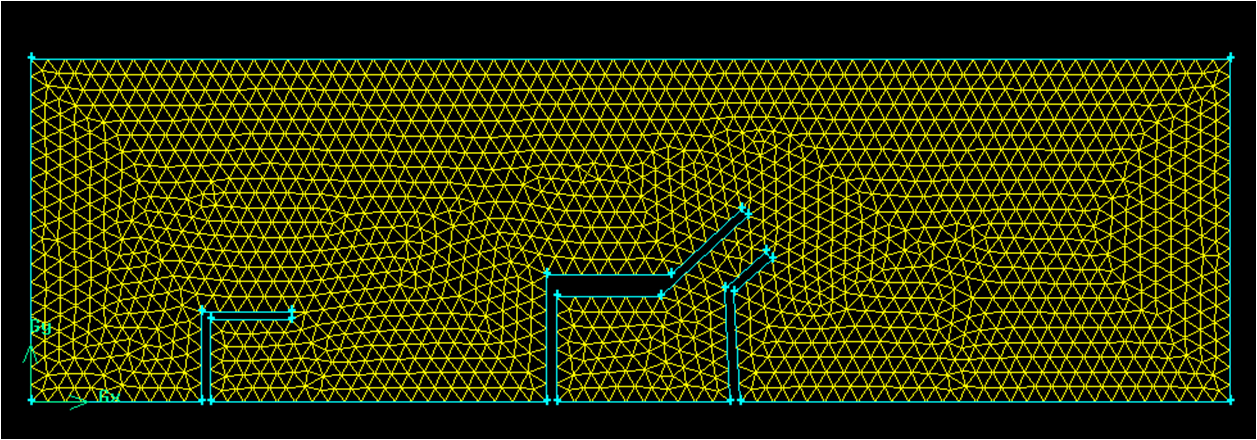CEE 514
Coastal Engineering
Fall Semester 2008
Coastal Engineering
Fall Semester 2008
Modeling
Flow in Little Sand Bay Harbor
Stacey Schmidt
Process
Model
Geometry
For my model I chose to
use Fluent Computational Fluid Dynamics software. Fluent uses the
finite volume method by employing the conservation of momentum,
conservation of mass, and conservation of energy equations. The
basic steps for creating any simulation in Fluent are as follows:
1. Define
Modeling Goals
2. Create
Model Geometry
and Mesh
3. Set
up Solver and Physical Models
4. Compute
and Monitor
Solution
5. Redefine
Modeling Goals if Needed
Modeling
Goals
My original modeling goal
was to create a simulation of the flow of Little Sand Bay Harbor by
applying data collected from the field trip including wind shear and
bathymetry.
Creating
the the model geometry based on the raw bathymetry data was a long
process.
First I needed to use a program in Matlab to interpolate the bathymetry data points to produce a set of (x,y,z) coordinate points. Below is a figure produced in Matlab of the data points with an exaggerated depth.

Next, a surface was was draped over these points in Point Cloud.

Gambit, the pre-processor for Fluent, does not read point cloud surfaces so I needed to convert it through a program called Rhinoceros. I imported the converted surface into AutoCAD to construct the harbor geometry based on GPS coordinates and local bathymetry.

Finally, I imported the bathymetry surface from Rhinoceros and the harbor geometry from AutoCAD into Gambit. I finalized the geometry by creating a single volume.
First I needed to use a program in Matlab to interpolate the bathymetry data points to produce a set of (x,y,z) coordinate points. Below is a figure produced in Matlab of the data points with an exaggerated depth.

Next, a surface was was draped over these points in Point Cloud.

Gambit, the pre-processor for Fluent, does not read point cloud surfaces so I needed to convert it through a program called Rhinoceros. I imported the converted surface into AutoCAD to construct the harbor geometry based on GPS coordinates and local bathymetry.

Finally, I imported the bathymetry surface from Rhinoceros and the harbor geometry from AutoCAD into Gambit. I finalized the geometry by creating a single volume.
Mesh
Generation
I meshed the volume in Gambit
using a size function to have smaller cells near the harbor walls for
better accuracy near this area of interest.

This mesh was ideally fine, but when I exported it into Fluent it was recognized as a single volume. That meant that I would need to separate all cells in Fluent and merge them back together as different surfaces so I could specify the boundary conditions for each surface. There were thousands of cells and I was running out of time for my project so I decided to redefine my modeling goals.

This mesh was ideally fine, but when I exported it into Fluent it was recognized as a single volume. That meant that I would need to separate all cells in Fluent and merge them back together as different surfaces so I could specify the boundary conditions for each surface. There were thousands of cells and I was running out of time for my project so I decided to redefine my modeling goals.
New
Modeling Goals
I decided to create a very simplified model to see general characteristics of the flow in the harbor.

I decided to create a very simplified model to see general characteristics of the flow in the harbor.
New
Model Mesh
Simplified the geometry by creating a rotated 2-D
model.
Produced a 2-D triangular surface mesh with specified boundary
conditions.